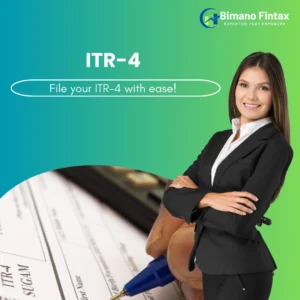Description
Introduction to ITR-7 Form
The ITR-7 form is a crucial document designed for certain types of exempt organizations to fulfill their tax filing obligations. This form is specifically tailored for entities that are not subject to regular income tax due to their unique nature and purpose, as defined under the Income Tax Act. These organizations include charitable trusts, religious institutions, political parties, scientific research institutions, and universities or educational institutions, among others.
Filing the ITR-7 form is mandatory for these organizations to ensure compliance with the regulatory framework governing tax exemptions. The primary purpose of the ITR-7 form is to provide a detailed account of the income and expenditures of these entities, thereby validating their claim for tax exemption. By submitting this form, these organizations demonstrate their adherence to the statutory requirements, ensuring transparency and accountability in their financial operations.
Various sections of the Income Tax Act, such as Section 11, Section 12, Section 13A, and Section 10(23C), outline the specific conditions under which these organizations can avail tax exemptions. For instance, Section 11 and Section 12 pertain to income derived from property held under trust or other legal obligation for charitable or religious purposes. Section 13A addresses the income of political parties, while Section 10(23C) covers certain educational and medical institutions.
Understanding the significance of the ITR-7 form is essential for the exempt organizations to maintain their tax-exempt status. Proper and timely filing not only helps in avoiding legal consequences but also strengthens the credibility and integrity of these entities in the eyes of stakeholders, including donors, beneficiaries, and regulatory authorities.
Eligible Entities for ITR-7 Filing
The ITR-7 form is a specialized income tax return form designated for a particular group of entities that are exempt from income tax under specific sections of the Income Tax Act. Understanding which entities are mandated to file ITR-7 is crucial for compliance, as it encompasses a diverse range of organizations. These include firms, companies, local authorities, associations of persons (AOPs), and artificial judicial individuals.
Among these, charitable or religious trusts are notable examples that fall under section 139(4a). Such entities, which operate for the public good without the intention of profit, must use the ITR-7 form to report their income and claim tax exemptions. Another significant group includes political parties, which are required to file under section 139(4b). Political entities must disclose their sources of income and expenditures, ensuring transparency and accountability.
Scientific research institutions are another category that must file ITR-7 under section 139(4c). These organizations, which contribute to the advancement of knowledge and technology, are afforded tax exemptions to support their endeavors. Similarly, educational institutions and entities engaged in the promotion of khadi and village industries are required to file under section 139(4d). These institutions play a vital role in socio-economic development and, as such, benefit from tax reliefs to facilitate their operations.
Local authorities are also mandated to file ITR-7, given their role in administering local governance and public services. Associations of persons (AOPs) and artificial judicial individuals, which include entities created by law that function collectively for a common purpose, are similarly obligated to comply with this filing requirement.
By ensuring these entities adhere to the filing requirements of ITR-7, the Income Tax Department maintains a structured and transparent tax system, promoting accountability and supporting the essential functions these organizations perform within society.
Key Sections of the Income Tax Act Relevant to ITR-7
The Income Tax Act of India encompasses several sections specifically tailored for entities required to file the ITR-7 form. Each section delineates the criteria for exemptions and the conditions under which these entities must comply. Understanding these sections is crucial for the accurate and efficient filing of ITR-7.
Section 139(4a) pertains to charitable or religious trusts and institutions. According to this section, any entity whose total income, without giving effect to the provisions of sections 11 and 12, exceeds the maximum amount which is not chargeable to income tax, must file a return of income. These provisions ensure that all income-generating activities of charitable and religious organizations are properly accounted for, and any exemptions claimed are justified.
Section 139(4b) is relevant to political parties. This section mandates that if the total income of a political party, without giving effect to the provisions of section 13A, exceeds the maximum amount not chargeable to income tax, then the political party must file an ITR-7. Section 13A provides for exemptions on income from house property, voluntary contributions, and other sources, provided certain conditions are met.
Section 139(4c) applies to specific entities such as research associations, news agencies, and educational or medical institutions. These entities are required to file ITR-7 if their gross income exceeds the non-taxable limit, without considering the exemptions under sections 10(21), 10(22B), 10(23A), and 10(23C). This section ensures that these organizations, which often operate for the public good, maintain transparency in their financial dealings.
Lastly, Section 139(4d) is targeted at universities and colleges that are not required to furnish the return of income under any other provision of this section. Regardless of whether their income exceeds the maximum amount not chargeable to income tax, these educational institutions must file the ITR-7. This requirement underscores the importance of financial accountability in the education sector.
These sections collectively ensure that entities eligible for tax exemptions maintain rigorous financial transparency and adhere to the regulatory framework set forth by the Income Tax Act. Compliance with these sections is essential for the proper filing of the ITR-7 form.
Step-by-Step Guide to Filing ITR-7
Filing the ITR-7 form is a critical task for exempt organizations in India, such as charitable trusts, political parties, and scientific research institutions. The process involves a series of meticulously followed steps to ensure compliance with the Income Tax Department’s regulations. This guide will walk you through each step, from preparation to submission, while highlighting common pitfalls and tips for accuracy.
Preparation Steps
Before you begin filing the ITR-7, gather all necessary documents and information. This includes the organization’s PAN card, audited financial statements, bank account details, and any other relevant documents that support the claim for exemption. Next, ensure that the organization is registered under the appropriate sections of the Income Tax Act, such as Section 12A for charitable trusts or Section 80G for organizations eligible for deduction. It’s advisable to review the previous year’s ITR-7 form to identify any discrepancies or areas of improvement.
Documentation Required
The key documents required for filing ITR-7 include audited financial statements, income and expenditure accounts, balance sheets, and details of donations received and utilized. Additionally, if the organization has foreign contributions, the details of such contributions must be disclosed. Ensure that all documents are accurate and up-to-date to avoid any delays or rejections.
Filing Process
Start by logging into the Income Tax e-filing portal using the organization’s credentials. Select the ITR-7 form from the list of available forms. Carefully fill in the required details, including the organization’s income, expenses, and exemptions claimed. Make sure to double-check all entries for accuracy. Attach the necessary documents in the specified formats, ensuring they are clear and legible. Once the form is completed, review it thoroughly before submitting it electronically. After submission, an acknowledgment receipt will be generated, which should be saved for future reference.
Common Mistakes to Avoid
One common mistake is incorrect or incomplete documentation, which can lead to the rejection of the ITR-7 form. Another error is inaccurately reporting income or expenses, which can attract penalties. Ensure that all figures match the audited financial statements and that the form is filled out completely. Also, avoid last-minute filing to reduce the risk of errors due to haste.
Tips for Accurate Filing
To ensure accurate and compliant filing, consider these tips: First, maintain organized records throughout the year to simplify the filing process. Second, consult with a tax professional or auditor to review the form before submission. Third, stay updated on any changes in tax laws or filing requirements that may affect your organization. Lastly, utilize the Income Tax Department’s resources, such as the user manual for ITR-7, to clarify any doubts.
By following these steps and tips, exempt organizations can efficiently file their ITR-7 form, ensuring compliance and avoiding potential penalties.
Common Challenges and How to Overcome Them
Filing the ITR-7 form for exempt organizations can present a myriad of challenges that, if not properly addressed, may lead to complications or delays. One of the primary obstacles organizations face is understanding the specific exemptions that apply to them. Exempt organizations often grapple with interpreting which parts of their income are exempt from tax and under which sections these exemptions fall. To navigate this, it is crucial to thoroughly review the Income Tax Act, particularly sections 11, 12, and 13, which outline conditions for tax exemptions.
Another significant challenge is the gathering of necessary documentation. Accurate record-keeping is essential for a seamless filing process. Organizations must ensure they maintain all relevant financial statements, donation receipts, and expense records. A practical solution is to implement a robust accounting system that categorizes and stores documents systematically throughout the year. This proactive approach can significantly reduce the time and effort required during the filing season.
Meeting filing deadlines is another common hurdle. The ITR-7 form must be filed by the 30th of September of the assessment year. Missing this deadline can result in penalties and interest on any unpaid taxes. To avoid this, organizations should establish an internal timeline that includes periodic reviews and pre-deadline checks. Designating a team responsible for monitoring compliance and progress can also ensure that all necessary steps are completed on time.
Lastly, the complexity of the form itself can be daunting. The ITR-7 form comprises multiple sections that need to be filled out accurately. It may be beneficial to seek the assistance of a tax professional or a chartered accountant who specializes in exempt organizations. Their expertise can help in correctly interpreting the form’s requirements and ensuring that all relevant information is accurately provided.
By addressing these common challenges with a strategic and organized approach, exempt organizations can streamline the ITR-7 filing process, ensuring compliance and minimizing potential issues.
Benefits of Using Bimano Fintax for ITR-7 Filing
Filing ITR-7 can be a complex task for exempt organizations, given the meticulous attention required for compliance with tax regulations. Bimano Fintax emerges as a reliable solution to streamline this intricate process, offering several significant advantages.
Firstly, Bimano Fintax simplifies the entire ITR-7 filing procedure. The software is designed with an intuitive interface that guides users step-by-step, minimizing the chances of errors. Comprehensive data validation checks ensure that all entries are accurate, reducing the likelihood of rejections or discrepancies. This not only saves time but also alleviates the stress associated with tax filing.
Secondly, compliance is a critical aspect of tax filing, and Bimano Fintax ensures that organizations adhere to the latest regulations. The software is regularly updated to reflect changes in tax laws, ensuring that your filings are always in alignment with current requirements. This dynamic feature helps organizations avoid potential penalties or legal issues stemming from non-compliance.
Additionally, Bimano Fintax offers a seamless filing experience. Its advanced features, such as automated data import and pre-filled forms, significantly reduce the manual workload. Users can import financial data directly from their accounting software, which accelerates the filing process and enhances accuracy. Furthermore, the software provides real-time assistance through customer support and detailed help guides, ensuring users have the support they need at every step.
Organizations that have utilized Bimano Fintax report notable improvements in their filing processes. For instance, a case study involving a medium-sized charitable trust highlighted how the software cut down their filing time by 50%, while simultaneously ensuring 100% compliance. Testimonials from satisfied users consistently praise the ease of use and reliability of Bimano Fintax.
Incorporating Bimano Fintax into your ITR-7 filing process not only streamlines operations but also ensures that your organization remains compliant with evolving tax laws. This powerful tool offers a blend of efficiency and accuracy, making it an invaluable resource for exempt organizations navigating the complexities of tax filing.
Ensuring Compliance with Tax Regulations
Compliance with tax regulations is paramount for exempt organizations filing the ITR-7 form. Adhering to the specified guidelines not only fulfills legal obligations but also ensures the organization’s credibility and trustworthiness. The ITR-7 form is designed for entities such as charitable trusts, religious institutions, and other non-profit organizations that are exempt under Section 139(4A), 139(4B), 139(4C), or 139(4D) of the Income Tax Act. Precise and accurate filing is essential to avoid any future scrutiny or penalties.
Non-compliance with tax regulations can lead to several adverse consequences. These include hefty fines, penalties, and even the revocation of tax-exempt status. Furthermore, an organization’s reputation could suffer significantly, potentially affecting its funding and donor support. In extreme cases, legal action may be taken against the organization or its responsible persons, leading to further complications.
To ensure compliance, organizations must be diligent in maintaining accurate financial records and staying updated on any changes in tax laws and regulations. Regular audits and reviews of financial statements can help identify any discrepancies or areas that need attention. Additionally, organizations should be aware of deadlines for tax filings and ensure that all submissions are made promptly.
Professional assistance plays a crucial role in maintaining compliance. Tax consultants and legal advisors specializing in non-profit and exempt organizations can provide valuable guidance and support. These professionals can help interpret complex tax laws, assist in accurate completion of the ITR-7 form, and ensure that all legal requirements are met. Engaging with experienced professionals can also provide peace of mind, knowing that the organization is in full compliance with tax regulations.
Ultimately, a proactive approach to compliance, supported by professional guidance, can safeguard exempt organizations from potential legal and financial repercussions, allowing them to focus on their core mission and objectives.
Conclusion and Final Tips
In this comprehensive guide to filing ITR-7 for exempt organizations, we have explored the critical aspects of the process. We began by defining what constitutes an exempt organization, highlighting the various entities eligible to file Form ITR-7. We then delved into the essential documentation required, emphasizing the importance of maintaining accurate financial records. The step-by-step guide detailed the filing process, from gathering necessary documents to submitting the form online. Additionally, we discussed common pitfalls and errors to avoid, ensuring compliance with the Income Tax Department’s regulations.
Accurate and compliant filing of ITR-7 is paramount for exempt organizations. It not only ensures adherence to legal requirements but also maintains the organization’s credibility and good standing. Errors or omissions in the filing process can result in penalties or even jeopardize the tax-exempt status of the organization. Therefore, meticulous attention to detail and adherence to guidelines are crucial.
For a successful filing experience, consider the following final tips:
- Stay Updated: Tax laws and filing requirements can change. Regularly check for updates from the Income Tax Department to ensure compliance.
- Maintain Comprehensive Records: Keep detailed records of all financial transactions, grants, and donations. Proper documentation simplifies the filing process and aids in accurate reporting.
- Review Thoroughly: Before submitting the ITR-7 form, double-check all entries for accuracy. Even minor errors can lead to complications.
- Seek Professional Assistance: Engaging professional services like Bimano Fintax can streamline the filing process. Their expertise can help navigate complexities and ensure a hassle-free experience.
By following these recommendations and leveraging professional support when necessary, exempt organizations can achieve a smooth and compliant ITR-7 filing process, thereby safeguarding their tax-exempt status and focusing on their core missions.






Reviews
There are no reviews yet.